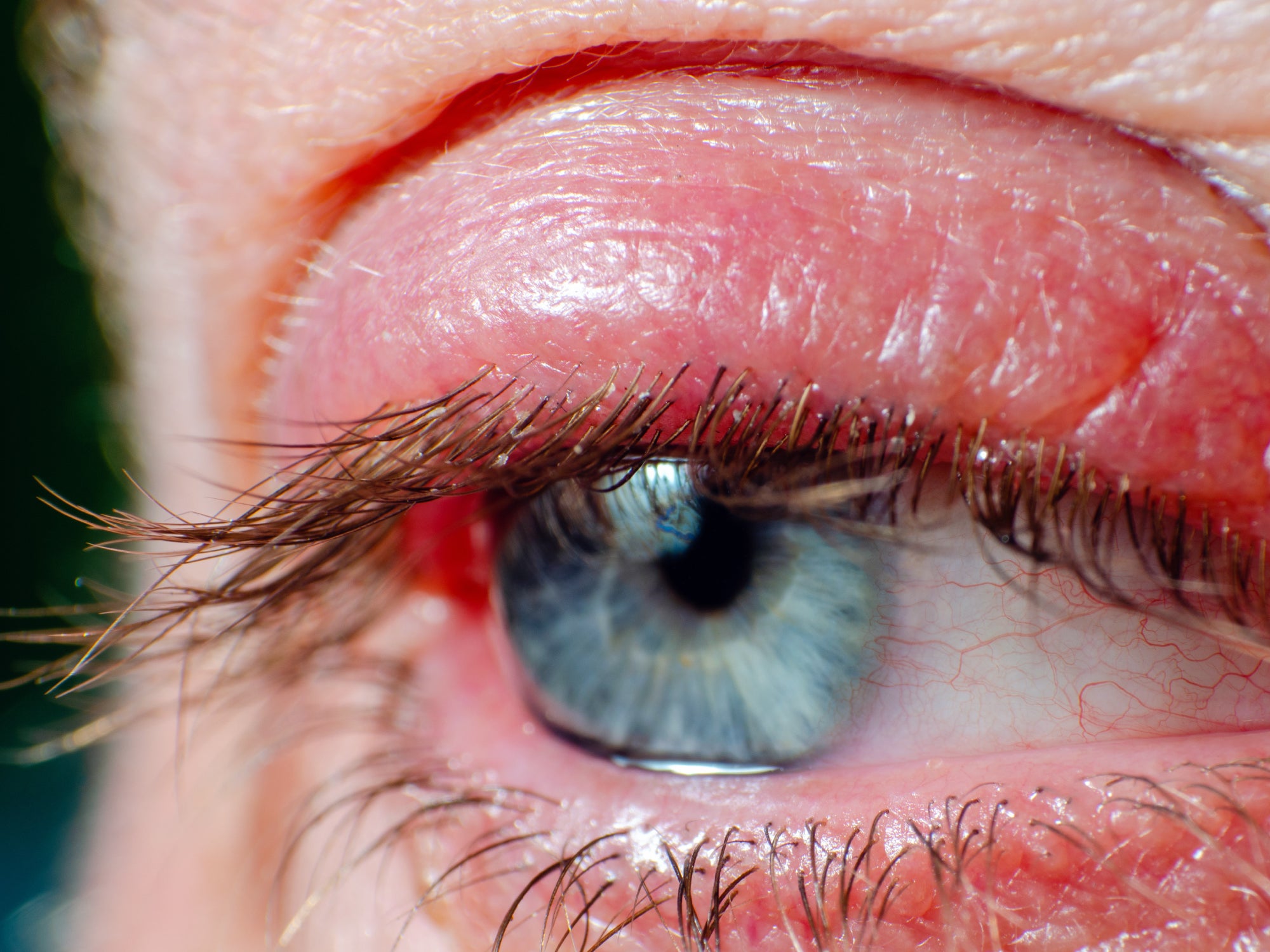What is blepharitis?
Blepharitis is an inflammation that affects the skin around the eye. The problem can be caused by a number of different factors, but usually involves either blocked oil ducts on the eyelids, associated skin conditions (such as rosacea and seborrheic dermatitis) or an overgrowth of microbes on the skin.
The condition tends to affect some people more than others, and those people are likely to find it comes and goes over time, suffering from a series of flares, rather than a one-off acute case. Chronic blepharitis is not something that can be cured, but it can be managed.
What are the symptoms of blepharitis?
- Dry skin around the eyes
- Inflammation
- Itchy or gritty feeling eyes
- Watery or dry eyes
- Crusty eyelids
What happens if you don’t treat blepharitis?
If you do nothing at all to manage your chronic blepharitis it’s likely that it’ll wax and wane over time, sometimes getting better and sometimes worse. Your body’s immune system will still be fighting off infections, repairing and generating its skin barrier, and maintaining as much equilibrium as possible, but it might struggle to keep blepharitis in check without some extra help.
What might that mean in practice? Well, it could be that your eyes are always a little bit itchy, sore, dry or inflamed. It might mean you rub your eyes a lot, and sometimes what is usually just uncomfortable or irritating can become painful, or even debilitating. At other times, you might not notice it at all.
Aggravating factors for blepharitis
Like other chronic conditions, a flare up of blepharitis can be triggered or aggravated by other factors. If your body is put under stress by things like cold weather, stress, irritant cosmetics, a flare of seborrheic dermatitis or rosacea, long hours in front of a screen or a dusty environment, then it might not be able to keep blepharitis in check. These factors can also affect the proliferation of the bacteria, yeasts and mites that can make your eyelids sore. The result would be a flare of itchy eyes that would then need to be actively treated.
Possible complications of blepharitis
While it’s impossible to ‘cure’ chronic blepharitis, or guarantee it will never recur, the ultimate aim of taking active steps to manage the condition is to reduce the frequency and the severity of flares, and to prevent more serious complications from happening. Untreated blepharitis can unfortunately lead on to other, more serious, problems. These include styes, chalazions, conjunctivitis, and even risks keratosis, permanent damage to the cornea.
How do you treat blepharitis?
Chronic blepharitis responds very well to a daily management plan, which involves a three-step cleaning routine.
- Heat: place a hot compress or eye bag over your eyes for five minutes to warm the area
- Massage: massage very gently around the eyelashes to dislodge crusts and unblock ducts
- Cleaning: use a fresh, clean cotton bud dipped in well-diluted (scent- and soap-free) wash to clean the area around the eyelashes and eyelids
There’s strong evidence to suggest that 5% tea tree ointment can prevent mites from breeding; massage a small amount of Balmonds Tea Tree Balm into your eyelashes. You can use diluted Balmonds Natural Shampoo & Body Wash to clean the area.
As part of your daily cleansing routine, swap your foaming or scented make-up remover for an oil-based cleanser, like Balmonds Omega-Rich Cleansing Oil, which is much less likely to irritate your eyelids.
If the condition persists, doesn’t improve or gets worse after a week of this regime, consult a doctor or pharmacist; you may be prescribed antibiotic eye drops.
Recommended products:
Balmonds Skin Salvation
with hemp and beeswax
Balmonds Tea Tree Balm
balm with tea tree essential oil and beeswax
Balmonds Natural Shampoo & Body Wash
with calendula & chamomile
Balmonds Omega-Rich Cleansing Oil
with rosehip and calendula
